Table of Contents
THIS MANIFESTO IS NOT ISSUED IN THE NAME OF AN ORGANIZATION OR A MOVEMENT. I SPEAK ONLY FOR MYSELF. THERE IS NO ROMANTIC MOVEMENT TODAY. IF THERE IS TO BE ONE IN THE ART OF THE FUTURE, THIS BOOK WILL HAVE HELPED IT TO COME INTO BEING.
In this searching and courageous work, Ayn Rand cuts through the haze of sentimentality and vague thinking that surrounds the subject of art. For the first time a precise definition is given to art, and a careful analysis made of its nature. With the uncompromising honesty Ayn Rands millions of readers have come to expect, the author presents a devastating case against both naturalistic and abstract artand explains the force that drives her to write, and the goals she strives to attain. The Romantic Manifesto takes its place as a keystone book in the towering intellectual edifice raised by one of the most remarkable writers and thinkers of our age.

SIGNET
Published by New American Library, a division of
Penguin Group (USA) Inc., 375 Hudson Street,
New York, New York 10014, USA
Penguin Group (Canada), 90 Eglinton Avenue East, Suite 700, Toronto,
Ontario M4P 2Y3, Canada (a division of Pearson Penguin Canada Inc.)
Penguin Books Ltd., 80 Strand, London WC2R 0RL, England
Penguin Ireland, 25 St. Stephens Green, Dublin 2,
Ireland (a division of Penguin Books Ltd.)
Penguin Group (Australia), 250 Camberwell Road, Camberwell, Victoria 3124,
Australia (a division of Pearson Australia Group Pty. Ltd.)
Penguin Books India Pvt. Ltd., 11 Community Centre, Panchsheel Park,
New Delhi - 110 017, India
Penguin Group (NZ), 67 Apollo Drive, Rosedale, North Shore 0745,
Auckland, New Zealand (a division of Pearson New Zealand Ltd.)
Penguin Books (South Africa) (Pty.) Ltd., 24 Sturdee Avenue,
Rosebank, Johannesburg 2196, South Africa
Penguin Books Ltd., Registered Offices:
80 Strand, London WC2R 0RL, England
First Signet Printing, January 1971
First Signet Printing (Second Revised Editon),
Copyright The Objectivist, Inc., 1966, 1968, 1969 Copyright The Objectivist Newsletter, Inc., 1962, 1963, 1965 Copyright Bantam Books, Inc., 1962 Copyright The Objectivist, Inc., 1971
All rights reserved. No part of this book may be reproduced in any form without written permission from the publisher, except for brief passages included in a review appearing in a newspaper or magazine. For information address Harry N. Abrams, Inc., 100 Fifth Avenue, New York, New York 10011.
Permission requests for college or textbook use should be addressed to the Estate of Ayn Rand, PO Box 51808, Irvine, California 92619.
Information about other books by Ayn Rand and her philosophy, Objectivism, may be obtained by writing to OBJECTIVISM, PO Box 51808, Irvine, California 92619.
 REGISTERED TRADEMARKMARCA REGISTRADA
REGISTERED TRADEMARKMARCA REGISTRADA
Without limiting the rights under copyright reserved above, no part of this publication may be reproduced, stored in or introduced into a retrieval system, or transmitted, in any form, or by any means (electronic, mechanical, photocopying, recording, or otherwise), without the prior written permission of both the copyright owner and the above publisher of this book.
PUBLISHERS NOTE
The publisher does not have any control over and does not assume any responsibility for author or third-party Web sites or their content.
The scanning, uploading, and distribution of this book via the Internet or via any other means without the permission of the publisher is illegal and punishable by law. Please purchase only authorized electronic editions, and do not participate in or encourage electronic piracy of copyrighted materials. Your support of the authors rights is appreciated.
eISBN: 9781101348215
http://us.penguingroup.com
Introduction
T HE dictionary definition of manifesto is: a public declaration of intentions, opinions, objectives or motives, as one issued by a government, sovereign, or organization. ( The Random House Dictionary of the English Language, College Edition, 1968.)
I must state, therefore, that this manifesto is not issued in the name of an organization or a movement. I speak only for myself. There is no Romantic movement today. If there is to be one in the art of the future, this book will have helped it to come into being.
According to my philosophy, one must not express intentions, opinions, objectives or motives without stating ones reasons for themi.e., without identifying their basis in reality. Therefore, the actual manifestothe declaration of my personal objectives or motivesis at the end of this book, after the presentation of the theoretical grounds that entitle me to these particular objectives and motives. The declaration is in Chapter 11, The Goal of My Writing, and, partly, in Chapter 10, Introduction to Ninety-Three.
Those who feel that art is outside the province of reason would be well advised to leave this book alone: it is not for them. Those who know that nothing is outside the province of reason will find in this book the base of a rational esthetics. It is the absence of such a base that has made todays obscenely grotesque degradation of art possible.
To quote from Chapter 6: The destruction of Romanticism in estheticslike the destruction of individualism in ethics or of capitalism in politicswas made possible by philosophical default.... In all three cases, the nature of the fundamental values involved had never been defined explicitly, the issues were fought in terms of non-essentials, and the values were destroyed by men who did not know what they were losing or why.
In regard to Romanticism, I have often thought that I am a bridge from the unidentified past to the future. As a child, I saw a glimpse of the pre-World War I world, the last afterglow of the most radiant cultural atmosphere in human history (achieved not by Russian, but by Western culture). So powerful a fire does not die at once: even under the Soviet regime, in my college years, such works as Hugos Ruy Blas and Schillers Don Carlos were included in theatrical repertories, not as historical revivals, but as part of the contemporary esthetic scene. Such was the level of the publics intellectual concerns and standards. If one has glimpsed that kind of artand wider: the possibility of that kind of cultureone is unable to be satisfied with anything less.
I must emphasize that I am not speaking of concretes, nor of politics, nor of journalistic trivia, but of that periods sense of life. Its art projected an overwhelming sense of intellectual freedom, of depth, i.e., concern with fundamental problems, of demanding standards, of inexhaustible originality, of unlimited possibilities and, above all, of profound respect for man. The existential atmosphere (which was then being destroyed by Europes philosophical trends and political systems) still held a benevolence that would be incredible to the men of today, i.e., a smiling, confident good will of man to man, and of man to life.
It has been said and written by many commentators that the atmosphere of the Western world before World War I is incommunicable to those who have not lived in that period. I used to wonder how men could say it, know it, yet give it upuntil I observed more closely the men of my own and the preceding generations. They had given it up and, along with it, they had given up everything that makes life worth living: conviction, purpose, values, future. They were drained, embittered hulks whimpering occasionally about the hopelessness of life.
Next page
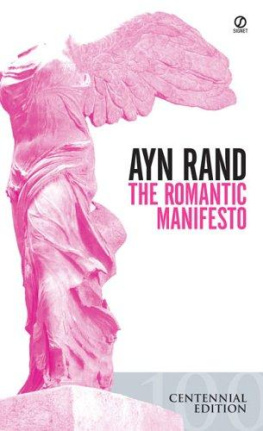
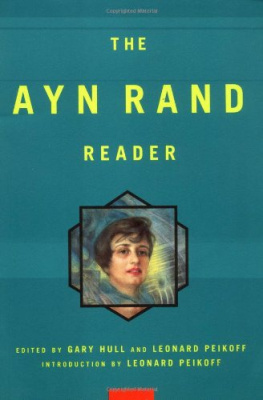
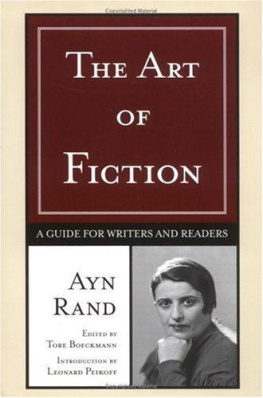
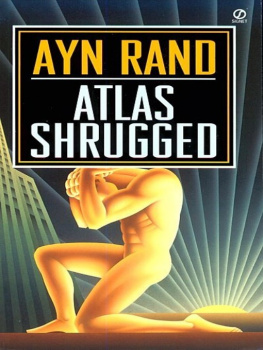
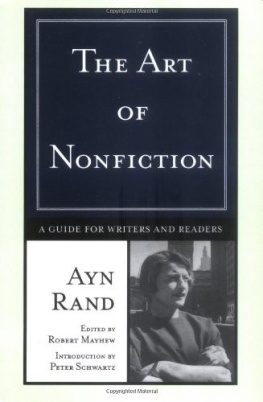
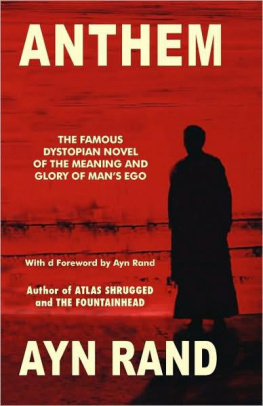

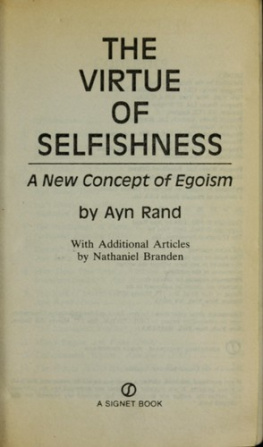

 REGISTERED TRADEMARKMARCA REGISTRADA
REGISTERED TRADEMARKMARCA REGISTRADA